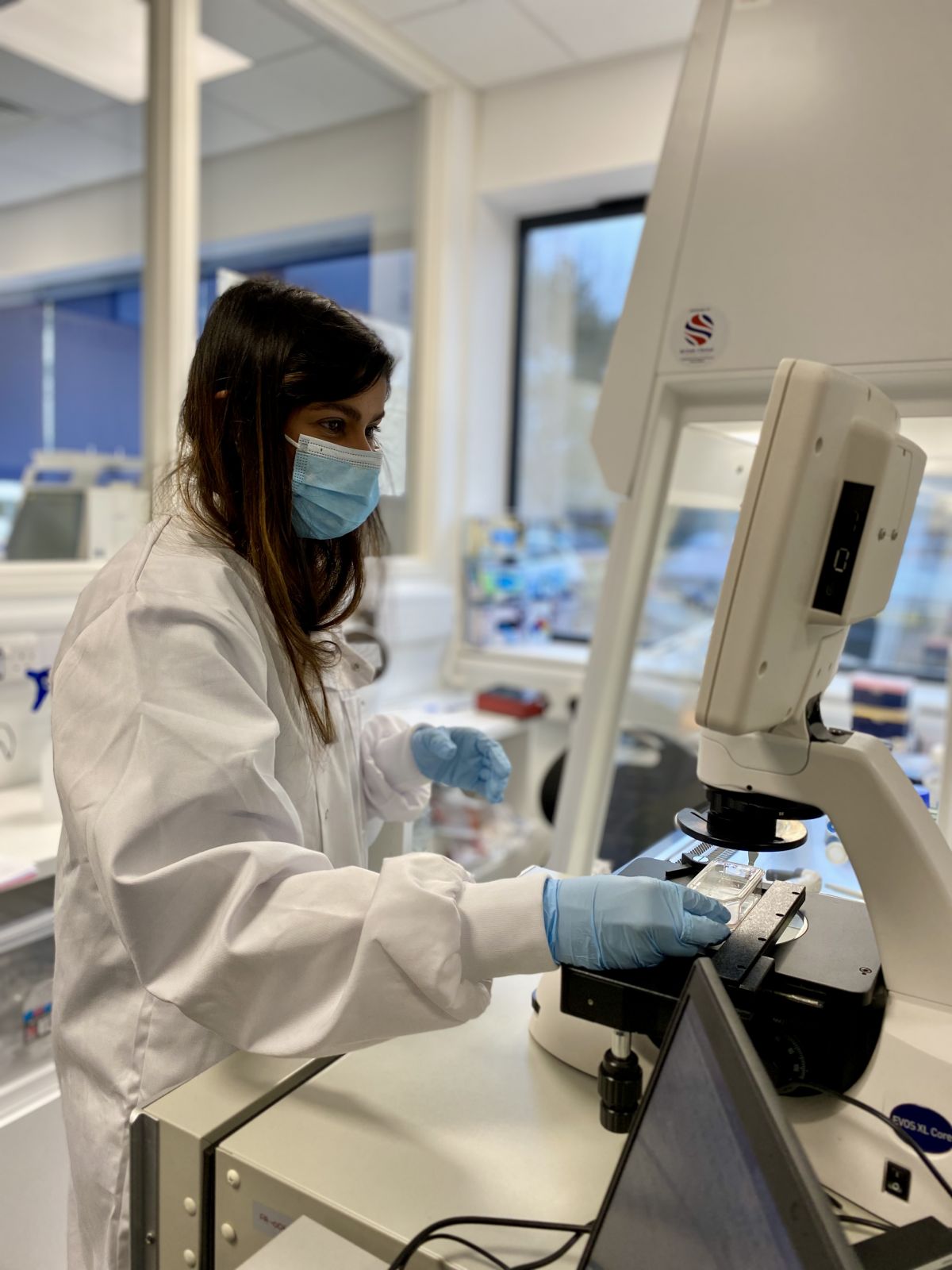Free Growth Factors for Summer Projects
Finding projects for summer students that allow them to learn and take ownership of independent research, while simultaneously being useful for the lab can be a challenge.
Growth factor comparisons and optimizations are a perfect option for summer students in stem cell and organoid labs. The student can learn basic lab skills while providing a useful set of data for the lab.
Performing growth factor optimizations can be time consuming, but ensuring an optimal set of growth factors allows for more consistent and homogenous cell cultures. Optimizing the amount of growth factor used (while maintaining results) can save huge sums of money in the long run.
At Qkine, we want to help both students and labs get the most out of summer studentships and so we are offering free summer student packs of up to 5 growth factors (up to 100 µg/product) to allow students to perform growth factor-related projects.
The best 2-page lab report will win the Qkine summer project prize and the host lab will receive £1000 in Qkine credit.
At a glance
Sign up now for a chance to claim up to 500 µg of growth factors for free.
Benefits for the lab
- Optimize media, save money and achieve better results
- Up to 500 µg of free growth factors
- £1000 Qkine credit for winning projects
Benefits for the student
- Learn independent project management skills
- Able to carry out complete project from start to finish
- Develop skills such as sterile technique, cell thawing, cell passaging, media prep, media changing, and cell counting
How to apply
Fill in this form to register your interest.
We will contact successful applicants to find out what growth factors you need.
If you have any queries please contact promotions@qkine.com
What to test
You decide! As long as they are part of our catalogue, you can choose which 5 growth factors you’d like to test in an optimization study of your choice.
If you need some inspiration, below are some ideas relating to FGF2 – there are so many options for FGF2 that it makes for a great focus. Our FGF2 range includes: human FGF2 (145aa), human FGF2 (154aa), FGF2-G3 (145aa), FGF2-G3 (154aa), zebrafish FGF2, mouse FGF2, and bovine/porcine FGF2.
Idea 1. Could a stable FGF-2 improve your cell culture?
FGF2 has a bioactive half-life of less than 10 hours. Even with daily media changes, the level of FGF2 signalling in media fluctuates substantially. FGF2-G3 is a thermostable form of FGF2 with a bioactive half-life of over 7 days. Could a more consistent level of FGF2 signalling allow for more homogeneous cultures?
Idea 2. Does the protein length of human FGF2 impact cell growth?
Human FGF2 is typically available in two lengths – 145aa or 154aa. Researchers’ rationale for using one form over the other is often based on prior use rather than definitive data. Is there a biological impact of using one form over the other?
We manufacture the stabilised FGF2-G3 in both 145aa and 154aa lengths to allow for direct comparisons with your preferred protein length. These alternative forms could be included in your investigation to determine if the 145aa out-preforms the 154aa (or vice-versa) in both the WT and stabilised forms.
Suggested conditions:
Idea 3. Try weekend-free cell culture!
B8 hiPSC media, developed in the Burridge lab at Northwestern University, is growing in popularity thanks to its cost-effective and weekend-free credentials. Why not compare B8 media with your current hiPSC media to see if your cells can be maintained as efficiently while giving you the weekends off.
We suggest trying both the published B8 recipe and a modified versions with a higher concentration of TGF-β1/3 (1 or 2 ng/ml) as our customers have reported this improves expression of pluripotency markers.
Suggested conditions:
- Your current iPSC media
- B8 media
- B8 media, high TGFβ
- Your current iPSC media using thermostable FGF2-G3
Idea 4. Could species-specific growth factors improve your cultures?
Zebrafish FGF2 is commonly used in human cell culture, but do human cells react differently to zebrafish FGF2 when compared to human FGF2? Bovine/porcine FGF2 is 99% similar to human FGF2, and mouse FGF2 is 94% similar. Does this evolutionary divergence effect cellular response to the protein?
Novel engineered forms (like FGF2-G3), while based on human FGF2, have more differences from human sequence than some other species. FGF2-G3 has 9 amino acid differences from the human FGF2 sequence. In comparison, only 2 of the 155 amino acids are different in bovine/porcine and human FGF2. ‘Species neutral’ forms like this could also be compared.
Suggested conditions:
- Human FGF2 (145aa or 154aa)
- Zebrafish FGF2
- Bovine/porcine FGF2
- Mouse FGF2
Idea 5. Optimize your reagent concentrations
Could you use less growth factors in your experiments? Perform a concentration dilution experiment to find out if your cells perform equally well with different concentrations of cytokines, with the potential to make your budget go further by spending less on reagents.
Suggested conditions:
Varying concentrations of your cytokines eg 40 ng/ml, 20 ng/ml, 10 ng/ml and 5 ng/ml of FGF2-G3
Resources

